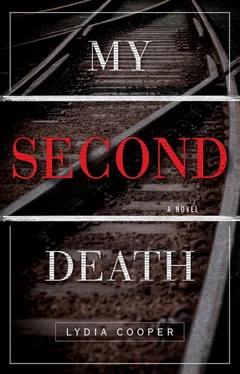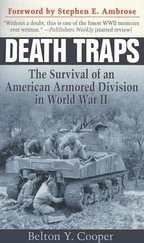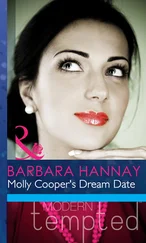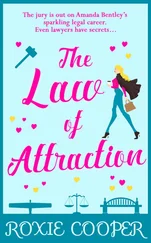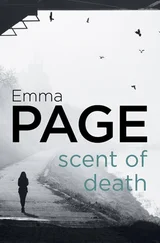He licks his lip and then he nestles his head back against the cushion and closes his eyes again.
I put my hands on my hips.
“Do you not even care? All this — you’re telling me you don’t even care ?”
His eyes remain closed, his face motionless. He inhales and exhales.
“Well,” I say. “You are very fucking welcome.”
I go back outside and down the stairs into great sheets of rain.
Pulling up my collar against the rain, I hike across campus to the library. I climb up to the third floor and sit in silence among the stacks smelling mildew and carpet cleaner. Books printed in primordial dialects of English rise like buttresses around me.
What did I think would happen? Did I imagine a scene of tent revival healing? Or perhaps the meticulous denouement of a Sherlock Holmes mystery, filled with modest expressions of gratitude and some spurious violin music?
Well, fuck him. Just… fuck him.
For one of the chapters in my dissertation, I am writing about medieval morality plays, popular stage plays performed by traveling thespians during the time when the English language was being wrought from the bitter struggle between Anglo-Saxon and Norman French. In these plays characters named Everyman, Vice, and Virtue act out simple stories in simple words in order to pare down human behavior to its most basic elements. In these plays God and the devil lurk in the wings while Everyman wanders the stage boards, trapped between redemption and damnation and armed only with a vocabulary limited to two syllables. Illiterate audiences learned their own language and the nature of civilized behavior in two hours.
Dr. Telushkin worries that my interest in morality plays stems from my belief that human ethics is not complicated, that morality can be codified in a series of rote gestures and that all moral judgment can be expressed using juvenile vocabulary words like good and bad . Dr. Telushkin is right. I crouch in the library and my fingers trace faded typescript in search of the knowledge of good. Or evil.
Dark brands of light lance across the evening sky as I walk home. The rain has cleared and the clotted clouds glow russet from the setting sun, a rim of fire opal around a mud-thickened globe.
I go inside and see Aidan kneeling by the couch, his head resting in a crack between the cushions. He looks like the fraudulent mimic of a faithful churchgoer and laughter bubbles up inside me, but then the laugh catches in my throat. Something about the laxness of his limbs. I go over and put my palms against the side of his neck. The skin moist and cool.
I hook my fingers in the neckline of his T-shirt and yank back and he falls, slithers through my hands and thuds on the floor. Runny vomit stains the couch cushions.
He coughs and burrows his head into the floorboards.
I go into the kitchen.
A trash bag full of warped glass bottles, amber liquid still sloshing across the bottoms. An empty bottle of ibuprofen.
I pull out an orange cardboard box of baking soda and a plastic cup. I mix baking soda and water with a teaspoon and carry it into the living room. I put the cup on the carpet. Then I kneel over him and haul him up, his head lolling back against the couch.
His jaw is slack. He exhales. His breath smells like piss.
“I’m drunk .”
His voice is a shredded whisper.
I tip his head back and pinch his nose, and his mouth opens. He puts feeble cold fingers against my wrist. I pour the cupful of soda water down his throat and force his jaw shut. One hand on the top of his skull, the other on his chin, I put my face in front of his.
“Swallow.”
He does, his eyes widening slightly. Milky liquid bubbles out the sides of his mouth. He struggles.
I release him, and he chokes and gags and strings of saliva and water dribble down his front. I slap his face.
The crack of sound startles both of us.
He gasps. And then his throat clicks, and he curls over and coughs and then pukes hard. He throws up, his diaphragm sending him into spasms of vomiting. He chokes and retches for almost three minutes. I look at my watch while he throws up. His vomit is runny, frothing with bubbles and the occasional white, decaying disc of a pill.
When he’s lying on his side making gagging noises but not spitting up anything else, I stand and go into the kitchen and rinse out the cup. I bring him a fresh cup of water and make him drink it. Then I carry the empty cup back and refill it. He lies on the floor with a cup of water by his head while I get out a spray bottle of Febreze. He groans and coughs and drinks water and lies on his side with his legs drawn up against his stomach while I carry the couch cushions outside to the trashcan.
When I come back in he gets up on one knee, a hand on the floor in front of him. He is struggling to his feet. His shoulders shift, strain. He stands as if growing from the earth one limb at a time.
“Mick — Mickey. I’m — I’m sorry .”
I look at him. He is leaking fluids and smells rancid.
Something strange twists in my stomach. A feeling — I don’t know what it is. I only know that I don’t want to cut him. He is a sloppy reeking mess and I don’t want anything or anyone to hurt him. The thought is so bizarre that I don’t know what to do with it.
He puts his arms out. His fingers reach for me. I turn on my heel and his fingers snag at my shirt, but the years of running have made me fast and I am out the door so quickly that his fingers close on nothing.
A tattered plastic bag slaps wetly against the side of the industrial garbage bin in the gusty wind. I wipe the back of my wrist against my mouth. I figured it would help him if I told him a psychotic kid killed his mother. Take his mom off the hook, and his autistic sister. Give him someone he could hate without feeling guilty afterwards. But I was wrong. I’m always wrong.
I fuck everything up.
I put my hands around my skull and press. My head hurts.
I pull out my cell phone and dial my brother’s number. This time I leave a message. I don’t know what I want to say but I start talking anyway. “Okay,” I say. “I did something bad and I don’t know how to — I just, I can’t do this anymore. I fucked it all up and I can’t — I want you to tell me what to do so that I, or if I can just—”
My voice stops. I can hardly breathe. I stand in silence with the phone pressed against my jaw. I don’t know what this is. Something hot and hard lodged in my chest, pressing against my esophagus. A shock of heat, like sudden fear, but what am I afraid of?
I hang up the phone.
Rain coalesces from a pellucid sky.
I don’t know how long I sit on the steps. When I lean forward my hair falls like a shank of half-frozen seaweed across my hands. Ice has formed around the tips like pearl building up around sand.
I don’t know where to go or what to do.
I want to run but it’s so cold. The only thing I have is my car. The keys are back inside. I don’t want to go back in there. But I need my car. I need the escape. I push myself to my feet.
When I open the apartment door I see Aidan standing at the kitchen sink with a can of Clorox and a scrub brush. Empty glass bottles in a kitchen trash bag heaved into the center of the floor, carpet cleaner white and foaming on the worn living room carpet.
He pauses when the door opens, then starts scrubbing again. I watch the shift of oblique muscle along his ribcage. He doesn’t lift his head.
The faintest plink of water droplets in the sink. But the faucet is turned off.
I don’t intend to say anything and am startled when I hear myself talking. My voice is low and vicious.
Читать дальше
